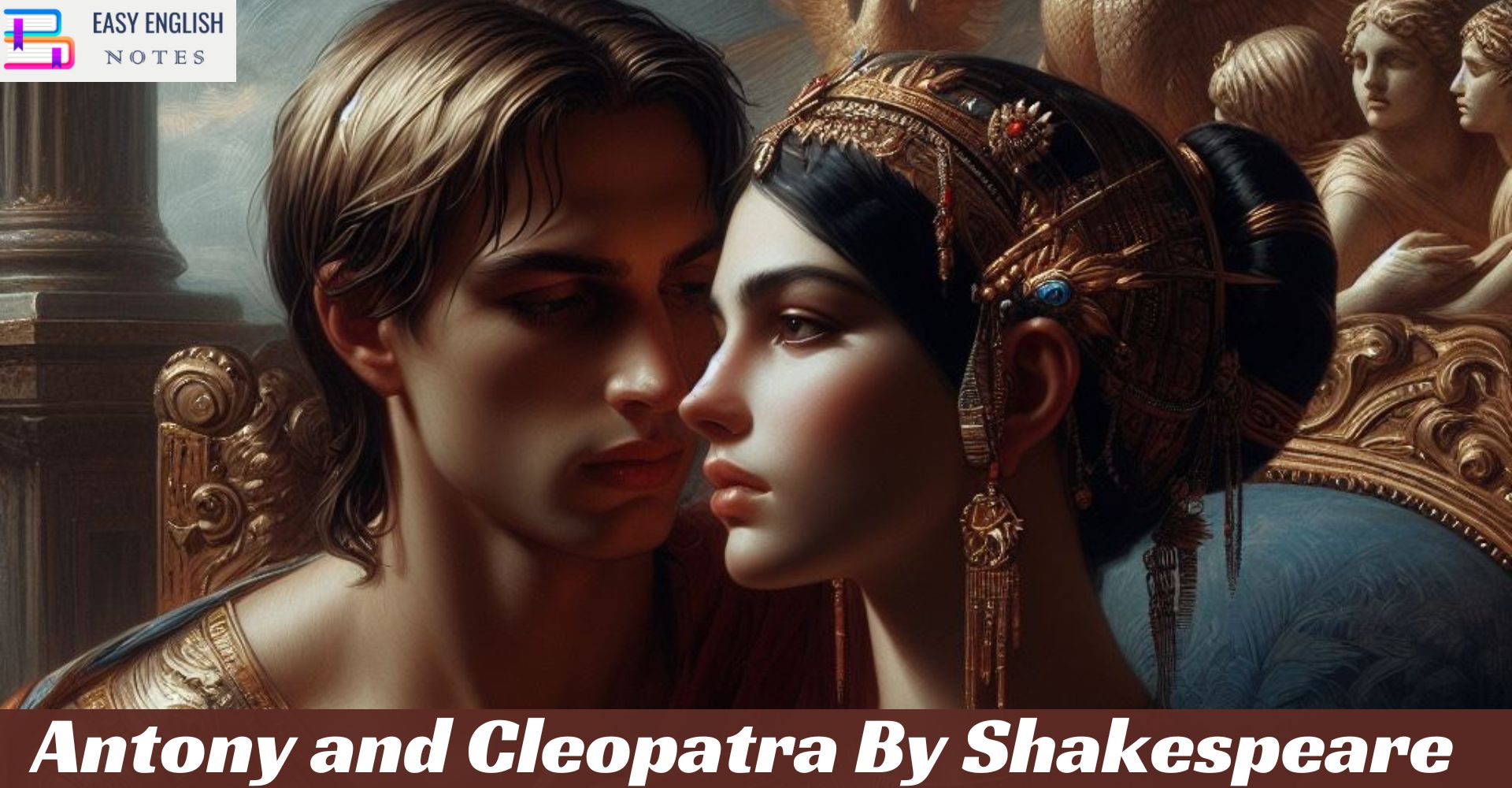Antony and Cleopatra deals ambiguously with the politics of imperialism and colonization. Critics have long been invested in untangling the web of political implications that characterise the play. Interpretations of the work often rely on an understanding of Egypt and Rome as they respectively signify Elizabethan ideals of East and West, contributing to a long-standing conversation about the play’s representation of the relationship between imperializing western countries and colonised eastern cultures.[55] Despite Octavius Caesar’s concluding victory and the absorption of Egypt into Rome, Antony and Cleopatra resists clear-cut alignment with Western values. Indeed, Cleopatra’s suicide has been interpreted as suggesting an indomitable quality in Egypt, and reaffirming Eastern culture as a timeless contender to the West.[28] However, particularly in earlier criticism, the narrative trajectory of Rome’s triumph and Cleopatra’s perceived weakness as a ruler have allowed readings that privilege Shakespeare’s representation of a Roman worldview. Octavius Caesar is seen as Shakespeare’s portrayal of an ideal governor, though perhaps an unfavourable friend or lover, and Rome is emblematic of reason and political excellence.
Google Ads PPC Training Digital – membership area
An Exclusive Blood Sugar Balancing And Weight Loss
According to this reading. Egypt is viewed as destructive and vulgar, the critic Paul Lawrence Rose writes: “Shakespeare clearly envisages Egypt as a political hell for the subject, where natural rights count for nothing.” Through the lens of such a reading, the ascendancy of Rome over Egypt does not speak to the practice of empire-building as much as it suggests the inevitable advantage of reason over sensuality.
More contemporary scholarship on the play, however, has typically recognised the allure of Egypt for Antony and Cleopatra’s audiences. Egypt’s magnetism and seeming cultural primacy over Rome have been explained by efforts to contextualise the political implications of the play within its period of production.
The various protagonists’ ruling styles have been identified with rulers contemporary to Shakespeare. For example, there appears to be continuity between the character of Cleopatra and the historical figure of Queen Elizabeth I, and the unfavourable light cast on Caesar has been explained as deriving from the claims of various 16th-century historians. The more recent influence of New Historicism and post-colonial studies have yielded readings of Shakespeare that typify the play as subversive, or challenging the status quo of Western imperialism.
The critic Abigail Scherer’s claim that “Shakespeare’s Egypt is a holiday world” recalls the criticisms of Egypt put forth by earlier scholarship and disputes them. Scherer and critics who recognise the wide appeal of Egypt have connected the spectacle and glory of Cleopatra’s greatness with the spectacle and glory of the theatre itself. Plays, as breeding grounds of idleness, were subject to attack by all levels of authority in the 1600s; the play’s celebration of pleasure and idleness in a subjugated Egypt makes it plausible to draw parallels between Egypt and the heavily censored theatre culture in England. In the context of England’s political atmosphere, Shakespeare’s representation of Egypt, as the greater source of poetry and imagination, resists support for 16th century colonial practices.
Also Read :
- Compare Hamlet with Macbeth, Othello and other Tragedies
- “The Pardoner’s Tale” is the finest tale of Chaucer
- Prologue to Canterbury Tales – (Short Ques & Ans)
- Confessional Poetry – Definition & meaning
- Line By Line Explanation Of The Poem The Eve of St. Agnes
Importantly, King James’ sanction of the founding of Jamestown occurred within months of Antony and Cleopatra’s debut on stage. England during the Renaissance found itself in an analogous position to the early Roman Republic. Shakespeare’s audience may have made the connection between England’s westward expansion and Antony and Cleopatra’s convoluted picture of Roman imperialism. In support of the reading of Shakespeare’s play as subversive, it has also been argued that 16th century audiences would have interpreted Antony and Cleopatra’s depiction of different models of government as exposing inherent weaknesses in an absolutist, imperial, and by extension monarchical, political state.











